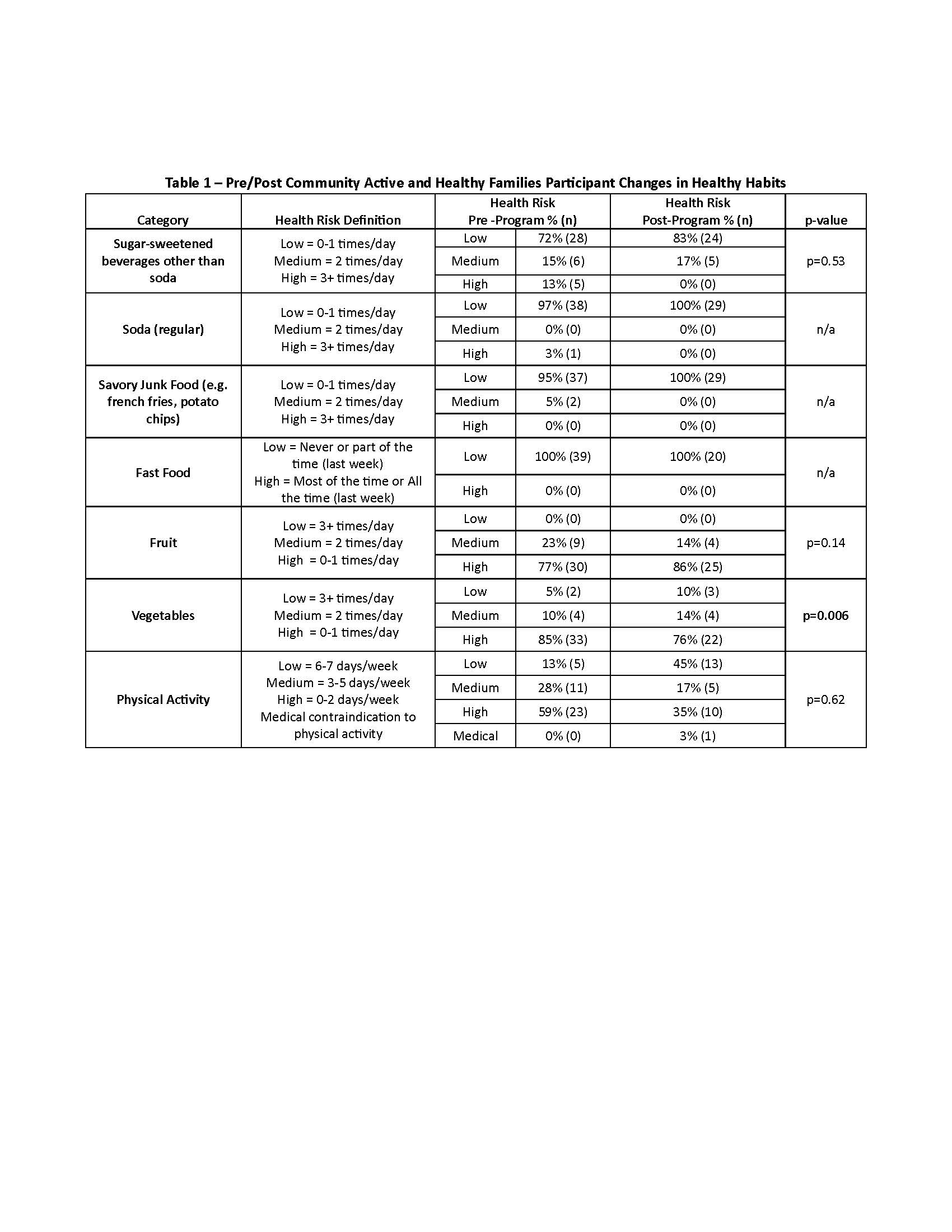Obesity
Session: Obesity 1
599 - Acceptability and Feasibility of Community-Based Weight Management for Latino Children in Immigrant Families
Monday, May 6, 2024
9:30 AM - 11:30 AM ET
Poster Number: 599
Publication Number: 599.3062
Publication Number: 599.3062

Lisa Ross DeCamp, MD, MSPH (she/her/hers)
Associate Professor
Children's Hospital Colorado | University of Colorado
Aurora, Colorado, United States
Presenting Author(s)
Background: US-born Latino children of immigrant parents comprise half of US Latino children and experience higher obesity rates than other Latino children. Current guidelines encourage use of intensive weight management to treat child obesity; clinical intensive programs frequently are not feasible for Latino immigrant families.
Objective: To describe acceptability, feasibility, and preliminary effectiveness of Community Active and Healthy Families an adaptation of an evidence-based weight management program that is behavioral-theory based, culturally tailored, delivered in Spanish and adapted for delivery in community settings by a community health worker and nurse.
Design/Methods: Programs were conducted at community sites in MD and CO Mar-Jun 2023 and included 5-12-year-old overweight and obese Latino children in immigrant families. Data collection included: 1) pre and post program height and weight measurements to calculate %BMIp95 based on Centers for Disease Control’s 2000 growth charts; 2) Surveys of sociodemographics, diet, and physical activity (PA); and 3) Parent/youth interviews among a subset of participants. Chi-square was used to evaluate changes in %BMIp95 and child diet. Interviews were coded and analyzed using thematic analysis including deductive and inductive coding.
Results: 93 people participated in the program including parents and siblings of the 39 child index participants who had a mean age of 9.8 years. Families attended a mean of 4.5/8 sessions. Pre/post data was available for 29 children. Mean change in %BMIp95 was -1.09 (5.4), p =0.14. Table 1 shows pre/post child diet/PA data. Parents reported the program was feasible to attend related to the number, length, and timing of evening sessions. Missed sessions often resulted from other family activities, unexpected work conflicts, or child illness. Interviews with 12 parents and 7 youth demonstrated program content was acceptable and both parent/child respondents reported liking the hands-on learning activities and child PA time. Parents reported making changes for the family as a result of the program, usually decreased sugary beverage intake and smaller portions. Changes in PA most often involved increased family outings. Barriers to change included fresh food costs, child diet preferences and time.
Conclusion(s): Community-based adaptation of evidenced-based weight management was feasible for families to attend. Content was acceptable and well-liked. Changes in %BMIp95 and diet generally trended in a positive direction. Findings indicate readiness for a larger-scale implementation and effectiveness evaluation.

